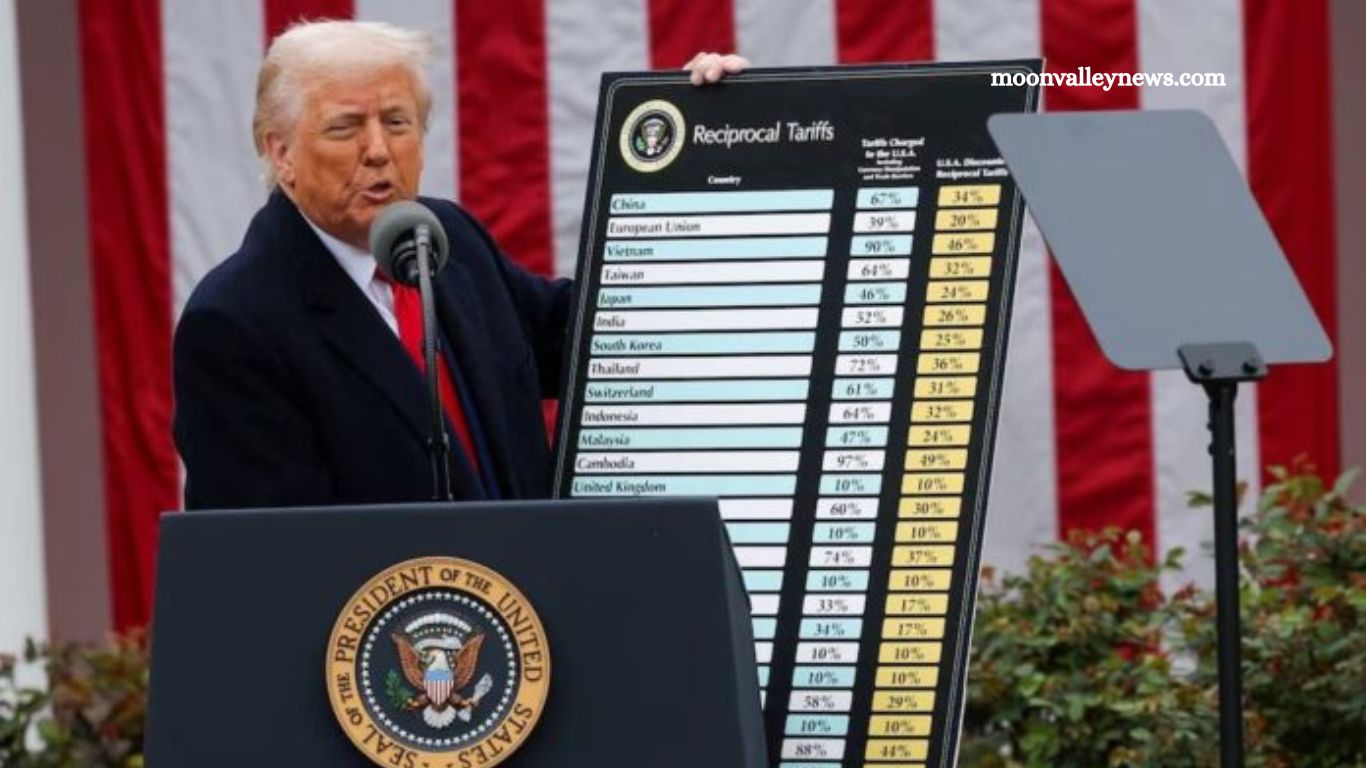President Donald Trump’s aggressive tariff policies have stirred volatility across financial markets, fueling concerns about a potential recession and economic slowdown. The S&P 500 has experienced significant fluctuations, and many investors are bracing for uncertainty ahead. However, amid this turbulence, sports team owners remain notably insulated from the broader market shocks. Unlike most industries, franchise values in the major North American sports leagues have demonstrated remarkable resilience, consistently appreciating even during past economic downturns.
Long-term media contracts, scarce franchise availability, and deeply loyal fanbases provide these owners with a financial cushion that shields their investments from many external shocks. As the market reacts to tariffs and trade tensions, sports franchises continue to offer stability and steady growth, defying the market’s unpredictability.
Read More: This Week in Fashion: Greta Lee and Josh O’Connor Star in Loewe’s “Character Study
Pandemic Impact: Revenue Drops but Values Hold Strong
When the Boston Red Sox finally took the field for a delayed Opening Day in 2020, Fenway Park was eerily quiet—empty stands, closed concession stands, and shuttered team shops. The Covid-19 pandemic devastated sports leagues worldwide, slashing revenues dramatically. The Red Sox, for instance, saw revenue plunge nearly 71%, from $519 million in 2019 to $152 million in 2020. Major League Baseball (MLB) as a whole mirrored this decline.
Yet, this steep revenue drop did not translate into diminished franchise values. Between 2020 and 2021, MLB team values appreciated 3% on average, climbing again by 9% in 2022. The Red Sox outpaced the average with a 5% increase followed by a 13% jump, reaching an estimated value of $4.8 billion in 2022—the third highest in baseball.
Resilience Amid Economic Uncertainty
Tom Werner, billionaire chairman of Fenway Sports Group (owners of the Red Sox, NHL’s Pittsburgh Penguins, and Premier League’s Liverpool FC), emphasizes that short-term financial hits are part of the investment journey. “You have to fasten your seatbelt,” he says, “and be patient.” That patience is particularly important now, as President Donald Trump’s tariffs cause market volatility.
In 2025, the S&P 500 fell 4%, after dropping 15% earlier in the year before a temporary rebound. Leading economists suggest a significant risk of recession, with JPMorgan estimating a 60% chance and Goldman Sachs nearly 45%. Nevertheless, sports franchise owners remain uniquely insulated.
Why Sports Team Values Defy Market Downturns
Historically, values of major North American sports teams tend to hold steady or even rise during economic downturns. From the 2008 financial crisis to the Covid-19 pandemic, sports franchises have demonstrated remarkable resilience. Since 1998, the average growth in team values has been approximately 2,000%, outpacing the S&P 500.
The Ross-Arctos Sports Franchise Index, tracking team values quarterly from 1960 to 2024, shows only rare and brief periods of decline. Over the last 48 years, it has fallen in consecutive quarters just three times. Its compound annual growth rate of 13% far exceeds the S&P 500’s 7% over the same span.
Long-Term Contracts and Scarcity Protect Revenues
A key factor shielding teams is their ability to secure long-term contracts for media rights, sponsorships, and premium seating. These agreements guarantee substantial revenue streams years in advance. For example, NBA teams earned an average of $45 million from luxury suites during the 2023-24 season—nearly 12% of total revenue. National media deals constitute an even larger portion, such as the NFL’s 60% share of team revenues from television rights.
Additionally, with only 124 franchises across the major leagues, scarcity drives competition among wealthy buyers. Dallas Mavericks minority owner Mark Cuban notes, “Over the long term, the scarcity and fun value will always be up and to the right.”
The Real Risks: Game-Day Operations and Consumer Spending
The greatest vulnerability lies in game-day operations—ticket sales, concessions, and merchandise—which can fluctuate with consumer spending. Although the economy currently shows signs of slowing, including shrinking GDP and rising unemployment claims, history indicates fans still prioritize attending games.
“People need a distraction, and the primary distraction we have in our country is sports,” says Marc Ganis, president of consulting firm Sportscorp.
Werner agrees, noting that fans continue to attend games even in challenging times. The Red Sox sold out 820 consecutive home games from 2003 to 2013, spanning the financial crisis. More recently, a mid-morning game in April drew 35,000 fans, underscoring strong community loyalty.
Frequently Asked Questions
How have Trump’s tariffs impacted the overall financial markets?
Trump’s tariffs have introduced uncertainty and volatility into financial markets, contributing to stock market declines and raising concerns about a potential recession.
Why are sports team owners largely unaffected by these market swings?
Sports franchises are insulated by long-term revenue contracts (media rights, sponsorships) and the scarcity of teams, which sustain franchise values despite broader economic downturns.
Do tariffs affect sports teams’ revenues or operations directly?
Tariffs generally impact industries reliant on international trade and manufacturing more than sports teams. While game-day revenues can fluctuate with consumer spending, franchise valuations remain stable.
Have sports team values declined during past economic crises?
Historically, sports franchise values have either held steady or increased even during recessions and market downturns, showing strong long-term growth trends.
Can economic downturns affect ticket sales or merchandise revenue?
Yes, economic slowdowns can reduce discretionary spending on tickets and merchandise, but loyal fanbases and media deals help mitigate revenue losses.
Conclusion
while President Trump’s tariff policies continue to unsettle financial markets and raise fears of a recession, sports team owners remain largely insulated from these economic tremors. The unique business model of major league franchises—with their long-term media contracts, limited supply, and fiercely loyal fanbases—provides stability that many other industries lack.
Although game-day revenues may face some pressure during economic slowdowns, the overall value of sports franchises has historically proven resilient, often appreciating even in challenging times.







